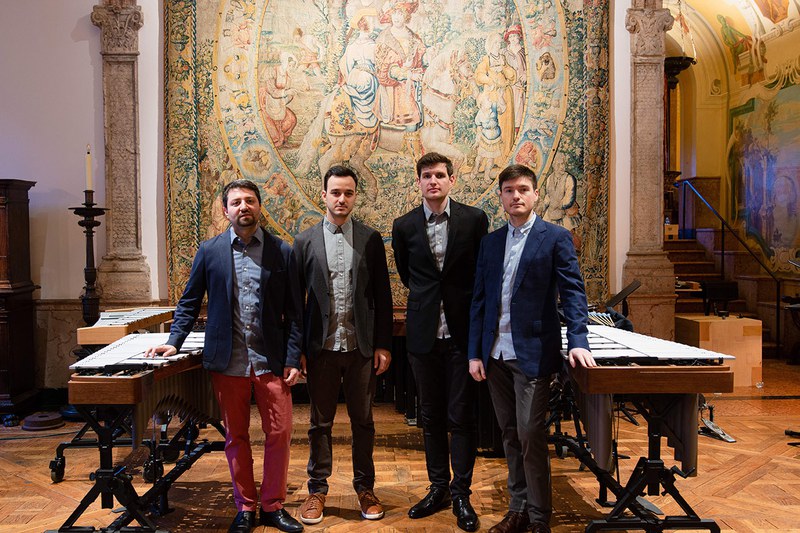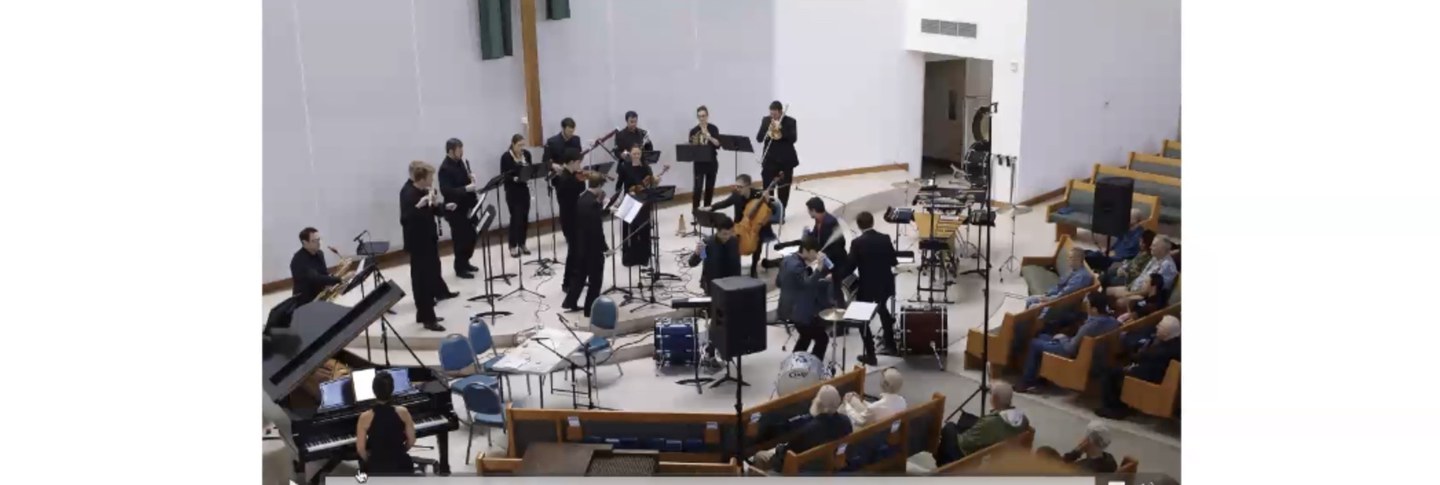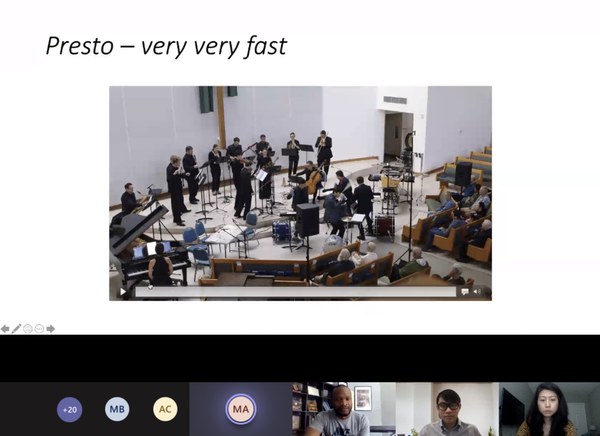By Viet Cuong
I arrived at Dumbarton Oaks in January with, I thought, a clear sense of the spring and summer before me. As the spring 2020 Early-Career Musician in Residence, I was excited about being part of DO’s vibrant community, working on my musical projects, and exploring Washington, DC—a city I had only briefly visited in years past. For the first six weeks of the term, I had a wonderful time filling my days with all these things. I looked forward each day to having lunch with the other fellows in the Refectory, where I learned something fascinating with every conversation. I would then spend my afternoons composing various projects, the main focus being a concerto for the contemporary music ensemble Eighth Blackbird and the US Navy Band.

Early March brought the Brooklyn-based quartet Sandbox Percussion to DC to perform the very first all-percussion concert at Dumbarton Oaks. With pieces by Jason Treuting, Amy Beth Kirsten, Johann Sebastian Bach, David Crowell, Victor Caccese, Juri Seo, Andy Akiho, and me, the concert was curated to showcase the incredibly wide range of sounds a percussion quartet can make. It brought me so much joy to walk into the Music Room and see marimbas, metal pipes, and drums juxtaposed with DO’s collection of tapestries, sculptures, and paintings. These concerts featured two pieces of mine: Water, Wine, Brandy, Brine, a piece for fifteen wineglasses, and Sandbox, a work generously commissioned by Dumbarton Oaks. Using a 24-inch wooden cube, sandpaper, and some wooden slats, Sandbox is written to highlight everything I find beautiful about Sandbox Percussion’s playing, especially their ability to sound like a single percussionist. The concerts were a huge success, and I think everyone left with a newfound or expanded love of percussion.
We didn’t know it at the time, but that concert was one of the last gatherings at DO this term, as we soon found ourselves in the grip of the pandemic. I remained in the increasingly empty fellowship house, and though one by one the performances scheduled for the coming year were canceled or postponed, I endeavored to make the most of my remaining time here. I’ll admit it’s been very difficult to remain creative and motivated to compose music since the pandemic began, but I’ve found that shifting my focus to smaller solo and chamber pieces has helped, as these pieces can be presented more feasibly in virtual spaces.
Prior to the pandemic, I had planned with Hannah Yang, education manager at Dumbarton Oaks, to visit music classes taught by Robert Bannister at John Burroughs Elementary School throughout the spring. These visits were canceled as soon as institutions saw the need to limit physical meetings, but Hannah and Robert set up two virtual meetings with his classes. There are of course limits to what can be taught effectively online—especially when it comes to music—and no proper substitute for in-person musical interaction currently exists. But I believe what we were able to do through distance learning with Robert’s class was enriching and engaging for the students.
Some things may not be possible through distance learning, but inspiring a student certainly is.
Viet Cuong
My first virtual visit in April was a presentation on my work as a composer, where I screenshared video clips of my music and answered questions about my life as a musician. The second virtual visit, in May, was essentially a lesson about tempo, where Hannah and I covered four common tempi with corresponding clips of my music. This time the students had even more questions for me, my favorite being, when did you start with music? I think many of them were quite surprised to hear me respond, when I was about your age! People often assume composing music is this enigmatic, magical ability, so putting a relatable face to a composer can empower young musicians to try it out for themselves. Even if the students left our virtual visit not remembering the definition of allegro, I’ll still be satisfied knowing we may have inspired them to ponder the many directions music can take them. Some things may not be possible through distance learning, but inspiring a student certainly is.
I will always be grateful for my stay here at Dumbarton Oaks. It really was a gift of time that I could fill with composing, planning, and reflection. I’m particularly thankful to have had this space to reflect, especially at a moment when we’ve all had to rethink how our institutions and organizations have traditionally operated. I look forward to when I can visit Dumbarton Oaks once again for an in-person concert, talk, or walk through the garden.
Viet Cuong was Early-Career Musician in Residence, 2019–2020 (spring term). Music Room photo by Elizabeth Muñoz Huber, postgraduate digital media fellow.

